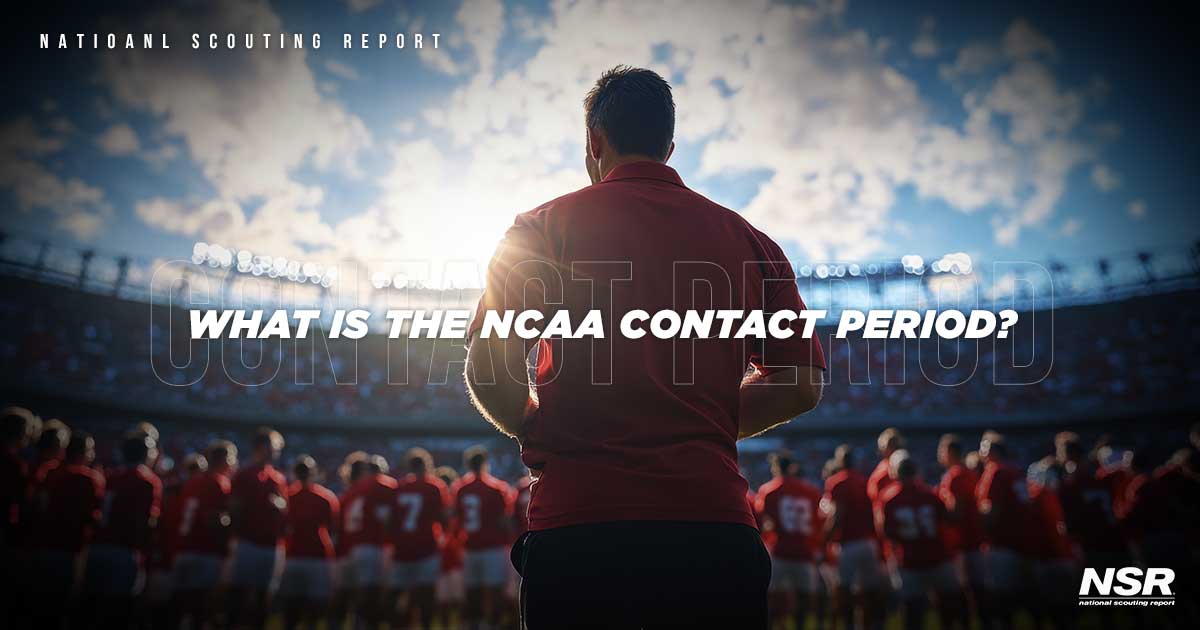The Contact Period is a designated time on the NCAA recruiting calendar when college coaches are allowed to have face-to-face contact with a recruit and their family, both on and off campus. This includes watching athletes compete, home visits, and official/unofficial visits. Communication via phone, text, and email is also fully permitted.
What Coaches Can Do During a Contact Period:
- Visit athletes in person, including at their home, school, or competitions.
- Host recruits on campus for official or unofficial visits.
- Make phone calls, send texts, and emails without limitation.
Watch athletes compete in games, meets, matches, or tournaments.
Sport-Specific Start Dates for Contact:
Different sports have different rules for when the contact period begins. Here are common starting points for D1 sports:
| Sport | Contact Begins |
| Football | June 15 after sophomore year |
| Men’s Basketball | June 15 after sophomore year |
| Women’s Basketball | June 15 after sophomore year |
| Baseball | Sept. 1 of junior year |
| Softball | Sept. 1 of junior year |
| Lacrosse | Sept. 1 of junior year |
| Track & Field | June 15 after sophomore year |
| Men’s Ice Hockey | Jan. 1 of sophomore year |
| Most Other Sports | June 15 after sophomore year or Sept. 1 junior year |
How It Differs from Other Periods:
- Dead Period – No in-person contact allowed at all.
- Quiet Period – In-person contact only allowed on the college campus.
- Evaluation Period – Coaches can watch you play but can’t talk to you in person off-campus.
Why It Matters
The Contact Period is when real decisions and offers often take place. It’s when college coaches move from evaluating to engaging, and potentially offering. It is not when the process begins. The identification, recognition and evaluation of the athletes that a college coach will offer will begin as early as 3 years before the contact period starts.
Remember, the above dates are only for division 1 coaches. Ideally, athletes should be communicating with coaches from other levels and divisions to ensure traction in their recruiting journey. D2 coaches are allowed to have some forms of communication with athletes at any time, however are limited to when face to face meetings can take place. D3, NAIA and JUCO college coaches have no restrictions concerning contact.
NSR scouts are trusted by college coaches to identify and evaluate athletes long before the contact period begins. NSR scouts can communicate and talk with athletes at any time. There are NO restrictions on when an NSR scout can evaluate an athlete. If you want to be prepared when that window opens, it starts with being evaluated.
National Scouting Report is dedicated to finding scholarship opportunities for athletes who possess the talent, desire, and motivation to compete at the collegiate level. We’ve helped connect thousands of athletes with their perfect college.
